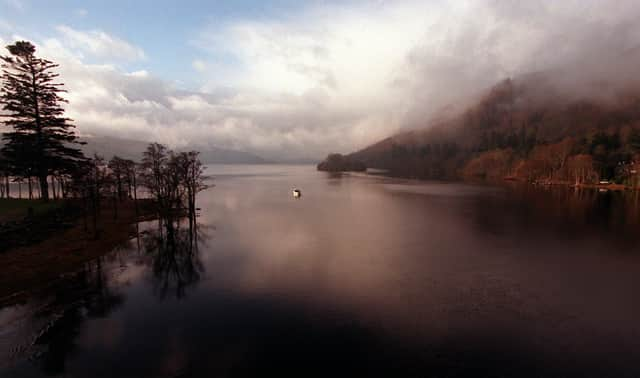'Dirty camping' is trashing some of Scotland's most beautiful places – Murdo Fraser MSP


The term “wild camping” is usually taken to mean the long-established practice of heading into the hills with a rucksack on one’s back, carrying a tent, sleeping bag and food, and seeking a peaceful location to spend the night. It is a practice that has been carried on in Scotland ever since access to the countryside became popularised at the end of the 19th century.
I have often wild camped myself, braving bog, rain and midges, usually trying to reach some of our more inaccessible Munros. Responsible wild campers take away everything they bring with them and leave no trace of their presence, in line with the rules of the Scottish Access Code.
Advertisement
Hide AdAdvertisement
Hide AdIn recent weeks, we have seen the rise of a new phenomenon, sometimes inappropriately referred to as “wild camping”, but actually very different from the activity just described.
What we are seeing are large groups of people descending on rural Scotland, camping at the roadside, cutting down trees and lighting fires and leaving behind huge amounts of litter, sometimes even abandoning their tents and camping equipment.
It is a practice that has been going on for some years on lochsides across Perthshire, part of the area I represent in the Scottish Parliament. But it now seems to be spreading, with large areas of the Highlands and the South of Scotland also impacted.
It is causing serious concern and distress for local residents, and substantial expense to the authorities who are left with having to clean up behind the irresponsible individuals involved.
Lockdown is no excuse
To distinguish this activity from true wild camping, it is now known as “dirty camping”, or even “trash camping”. With the closure of many official camping sites due to the Covid-19 pandemic, and restrictions on overseas travel, it is perhaps no surprise that we have seen a surge in this activity in recent weeks, but that is no excuse for some of the behaviour that we are witnessing.
Steps were taken by the Loch Lomond and Trossachs National Park some years ago to try and address the problem in that area, by introducing camping restrictions and bringing in a permit scheme. Unfortunately, this seems to have had the effect of displacing the activity to other areas, particularly lochs like Tay, Tummel and Rannoch, within relatively easy reach of the Central Belt.
It would certainly be possible to extend camping restrictions to other parts of Scotland through the promulgation of local authority by-laws, but this is an expensive and time-consuming process, and is unlikely to provide any short-term relief for the communities affected.
In my own area, Perth and Kinross Council have sought to address the problem by establishing a multi-agency group with Police Scotland, Scottish Fire and Rescue, and local communities, aiming to manage the situation and take action where necessary, including running a communication campaign to promote good behaviour.
Identify the offenders and hold them accountable
Advertisement
Hide AdAdvertisement
Hide AdThere is a recognition here that there needs to be proper enforcement of existing laws.
The right of access to land in Scotland, which includes the right to wild camp, is not unqualified: it is a right of responsible access, and individuals acting irresponsibly lose that right and, technically, are committing an offence of trespass.
That, however, is of little help if there is no-one on the ground to actually enforce the law, and we know how stretched the resources of Police Scotland currently are.
There is no one simple solution to this problem. It will require agencies to work together to identify offenders and hold them accountable. It will require better information being provided to the public to advise of the legal position, and what is and is not permissible.
Above all, it will require people to start acting responsibly, having a care for their countryside and not leaving it in a mess.
When so many people claim to be proud of Scotland, it is deeply ironic that this phenomenon of dirty camping is becoming such a scourge.
Murdo Fraser is a Scottish Conservative MSP for Mid Scotland and Fife
A message from the Editor:
Thank you for reading this article on our website. While I have your attention, I also have an important request to make of you.
Advertisement
Hide AdAdvertisement
Hide AdWith the coronavirus lockdown having a major impact on many of our advertisers - and consequently the revenue we receive - we are more reliant than ever on you taking out a digital subscription.
Subscribe to scotsman.com and enjoy unlimited access to Scottish news and information online and on our app. With a digital subscription, you can read more than 5 articles, see fewer ads, enjoy faster load times, and get access to exclusive newsletters and content. Visit www.scotsman.com/subscriptions now to sign up.
Our journalism costs money and we rely on advertising, print and digital revenues to help to support them. By supporting us, we are able to support you in providing trusted, fact-checked content for this website.
Joy Yates
Editorial Director
Comments
Want to join the conversation? Please or to comment on this article.